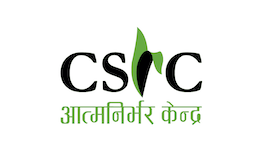FPIC (Free, Prior and Informed Consent)
Project Name: FPIC (Free, Prior and Informed Consent)
Working Area: Uttargaya Rural Municipality, Rasuwa
Project Partner: OXFAM NOVIB
Project Duration: April 2024- July 2025
Project Outcomes:
Outcome 1: Continuous advocacy for the effective implementation of the IPP, TPA, and other community benefits has empowered communities to develop robust grant proposals. This has enabled them to access resources from the IPP, enhancing their livelihoods and mitigating negative impacts.
Outcome 2: The NWEDC company contributed actively to the effective implementation of the IPP, LALRP, and TPA, and other benefits for the communities.
Outcome 3: The community leaders, local concerned stakeholders actively engaged for the advocacy initiatives for benefit sharing from hydroelectricity company profit after power generation to the local affected communities more benefit.
Total Budget : NPR 46,31,018
FPIC Research Follow-up, Advocacy Initiatives, and IPP Implementation Support Program
In collaboration with Oxfam Novib, Community Self-Reliance Centre (CSRC), initiated awareness and implementation of the Indigenous Peoples Plan (IPP) for the Upper Trishuli-1, Hydroelectric Project-affected indigenous communities in Rasuwa District since 15th October 2022. Regarding the IPP implementation, the CSRC and Oxfam Novib have progressed significantly in advocacy initiatives through the Free, Prior, and Informed Consent (FPIC) process between thirteen Indigenous Communities of Rasuwa District and the project-owned company, Nepal Water & Energy Development Company Pvt. Ltd. (NWEDC). The NWEDC is undertaking the Upper Trishuli-1 hydroelectric project, expecting 216 megawatts of electricity at Uttargaya and Aamachhodingmo’s Trishuli River in Rasuwa.
Dr. Nabin Rai conducted independent research throughout 2021-2022, revealing that there was already the FPIC and IPP; and a tripartite agreement among the NWEDC, Communities, and the local government in 2018. However, progress remained stalled due to unresolved disagreements between the communities and the company. Building on Dr. Rai’s findings, CSRC and Oxfam Novib’s collaboration facilitated a successful dispute resolution process and initiated the IPP implementation and FPIC advocacy. By documenting lessons learned, this initiative aims to empower affected communities and advocate for stronger FPIC practices with a remarkable illustration of the FPIC in South Asia.
The collaboration of CSRC and Oxfam Novib facilitated the formation of a new IPP board, developing the IPP implementation guidelines, and Financial and Human Resource Mobilization guidelines that are now being implemented. With the support of CSRC and Oxfam, NWEDC is actively undertaking its role and responsibility in the FPIC Implementation process. To resolve the existing disputes and disagreements, the initiative was focused on the advocacy strategy in the first phase from October 2022 to June 2023, the second phase was focused on IPP implementation, in which IPP guideline was developed; and training sessions and facilitation workshops emphasizing dispute resolution and well-being of the indigenous communities from July 2023 to March 2024. The third phase is currently underway, with promising outcomes of the IPP implementation.
Major Outcomes of the Advocacy from 2023-2024
- Formulated IPP Implementation and Financial & Human Resource Guidelines based on community input, including:
- Equal budget distribution across 13 villages.
- Dedicated budget for community-led projects.
- Prioritization of those displaced by the project.
- Established 52 Program Committees across 13 communities focusing on Cultural Heritage, Social Development, Economics Development, and Capacity Development.
- A total of 52 Program committees developed proposals for various thematic areas.
- The IPP Support unit is established and actively working on IPP Implementation. Also, Established a separate office for the IPP Governing Board.
- NWEDC company and community program committees signed an agreement to start the IPP implementation at the village level.
Ongoing Activities for FPIC Advocacy Program Outcomes
- Fostering Continuous Collaboration.
- Enhancing Coordination and Communication.
- Strengthening Land Rights by collaborating with the District Land Rights Forum.
- Expanding Knowledge and Program Development.

